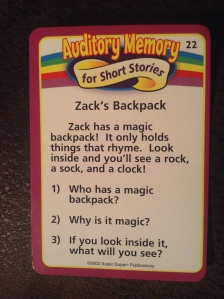April 5th started out like any ordinary day.
Jaycee woke up once again with a junky cough that we had been treating with frequent breathing treatments. She had finished one course of steroids and antibiotics about a week prior for this same cough. I had checked Jaycee on her monitor that morning which showed her heart rate and oxygen saturations numbers where they had been running. I got the kids off to school and went to work for a few hours.
Before the school day would end, things would change drastically with Jaycee's breathing. Jaycee spent the next three nights in the hospital. It's hard to recount everything that transpired over that time. The hospital is able to condense the illness into just a few paragraphs in her thick medical chart.
Here's the hospital's version of that stay from her discharge report:
Here's the full story of what happened:
Jaycee's mother was driving to school to watch her son in a class program. Jaycee's teacher called with concerns about her breathing. Jaycee seemed tired and her oxygen saturation numbers (taken by Jaycee's portable monitor) was lower than the previous days. Jaycee's mother arrived at the school a few minutes later to check on her. Jaycee was given her inhaler again but her oxygen saturation numbers were still in the safe zone. Jaycee then vomited but otherwise seemed in no immediate danger.
School staff worked to clean up Jaycee while her mother attended her son's short program. About 20 minutes later, Jaycee's mother arrived back in her classroom to take her home. Jaycee's arms were splotchy and her lips were discolored. The monitor now showed Jaycee was having difficulty breathing and a third breathing treatment was completed at school. Jaycee then became incontinent.
Jaycee was taken to the emergency room by her teacher and her mother. Arrangements were made for Jaycee's brother before they left school. Initially, Jaycee's numbers looked better at the hospital. After some time, her heart rate and respiratory rate increased while her oxygen saturations started to decrease. Jaycee was placed on oxygen. An IV was placed, blood was drawn for labs, and a chest x-ray was taken. Jaycee continued to be incontinent, throwing up, and started to run a fever.
Jaycee's mother and teacher were informed that Jaycee was septic and would be transferred to a Children's hospital. Jaycee's mother was upset because Jaycee had been septic in 2013, which required a 4 week hospital stay and intubation to recover. IV antibiotics and steroids were started, fluid boluses were given as well as breathing treatments. Jaycee's father was contacted by phone of her change in status so that he could come straight to the hospital. Jaycee's parents immediately contacted people who would start praying for Jaycee.
Almost 2 hours later, the ambulance arrived to transport Jaycee. It had been delayed due to a heavy rainstorm. Jaycee's mother rode in the ambulance while her father drove the family's vehicle to the hospital.
Jaycee arrived at the pulmonary wing of the hospital around 9 pm. Her vital signs were much better but she still needed oxygen and frequent treatments. The doctors explained why they felt she was not septic and believed her symptoms were probably due to acute respiratory failure. However, if she did have sepsis, then her symptoms would return 24 hours after her antibiotics were first given. Jaycee's parents were hopeful but would feel more relieved after the 24 hour mark that came and went without a change in status.

Jaycee received breathing treatments and vest airway clearance round-the-clock during the admission. Jaycee had many desaturations the first night. She needed oxygen day and night initially but was able to be weaned off 24 hours prior to discharge. Jaycee did test positive for a cold virus but her chest x-ray was clear. Jaycee's parents stayed at the hospital and were involved in her care. Jaycee was discharged on April 8th on a long steroid wean and round-the-clock treatments.
***
The hospital's version remarks only on the major medical issues and interventions. My version acknowledges the impact on Jaycee and the people around her.
A hospital stay affects a family in many ways. My son suddenly found himself in his grandma's care. My husband and I felt the chaos of an unexpected admission and fear of what would happen to Jaycee. Jaycee was scared too and exhausted. Things didn't go back to normal immediately once we were all home.
A few days after leaving the hospital, Jaycee had to be coaxed out of our van for the follow up appointment with a local doctor. Even after she left the van, she was scared and reluctant to walk inside the clinic. I had to reassure her that nothing bad would happen today and we would go home right after the doctor saw her.
And so, there are two versions to every story. An unexpected health illness does more than just threatens a person's body. It disrupts lives. It causes emotional issues. It can separate families temporarily.
A hospital stay is much more than a few sentences in a patient's chart. It is part of a person's life story.








